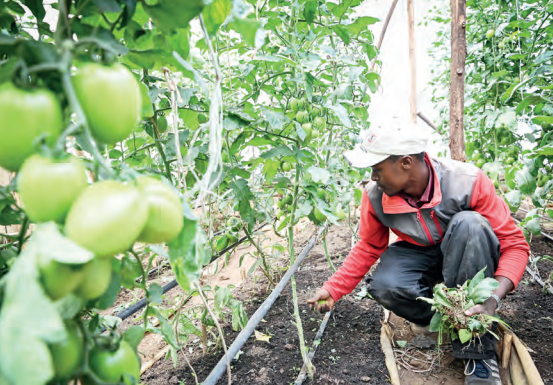
Farmers are urging that their voices be heard in shaping climate change strategies that affect their livelihoods.
The Eastern Africa Farmers Federation, representing 24 farmer organisations across 10 countries and over 25 million farmers, appealed for greater support to tackle the climate challenges facing agriculture in East Africa.
Elizabeth Nsimadala, President of EAFF said there is need to strengthen farmers’ voices in global climate policy discussions.
She called for clear rules in carbon markets to ensure transparency, prevent land grabs and protect efforts to reduce emissions.
Nsimadala pointed out the importance of building farmers’ knowledge about carbon markets to create fair opportunities for them.
She pointed out that while a lot of funding goes to renewable energy, agriculture remains underfunded, even though it is highly vulnerable to climate impacts.
“While the majority of tracked climate finance flows to mitigation activities, particularly renewable energy and low-carbon transport, adaptation finance remains significantly underfunded. Africa’s agriculture sector, despite being highly vulnerable, receives a disproportionately low share of this finance,” Nsimadala said.
She called for a new climate finance goal that is based on farmers’ real needs.
The EAFF advocates for increased support for activities that help achieve climate adaptation goals and contribute to the Loss and Damage Fund.
The recent Global Stocktake of the UN Framework Convention on Climate Change concluded at COP28 in 2023 showed that countries are off track to limit global warming to 1.5°C.
In addition, the findings of the Intergovernmental Panel on Climate Change’s Sixth Assessment Report indicated that Africa has an acute vulnerability to climate change, particularly in the agricultural sector.
With COP29 coming up in Baku In November, Nsimadala stressed the need for countries to commit to stronger climate finance that specifically supports farmers’ adaptation efforts.
Stephen Muchiri, the Federation’s CEO, said delivery of climate financing should be improved.
He urged for more grants and low interest loans instead of burdensome debts. Muchiri stressed the need for agriculture-specific funding within major climate finance institutions.
“The EAFF is committed to working with international partners to develop proposals for climate funding. By leveraging the knowledge and experiences of its members, the EAFF aims to ensure that farmers receive the resources needed for sustainable practices,” he said.
“This collaboration will help
bridge the gap between global
funding mechanisms and grassroots
adaptation efforts.”















